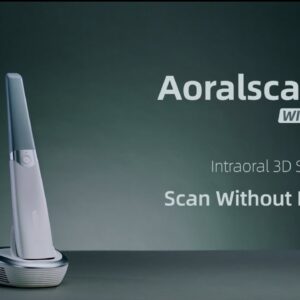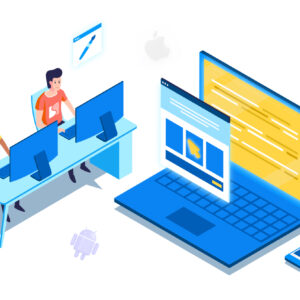In the digital age, accessibility is no longer optional—it’s expected. Brands and organizations that prioritize inclusive communication not only meet ethical and legal standards but also expand their reach, strengthen trust, and future-proof their strategies. Yet, despite growing awareness, many PR teams still treat accessibility as an afterthought—something to fix retroactively rather than build in from the start.
Enter: the inclusive PR tech stack—a set of tools and technologies designed to ensure that all content is accessible by default. From real-time captioning and screen reader compatibility to alt-text generators and language simplifiers, today’s tech can transform how we create, test, and distribute content for audiences of all abilities.
In this blog, we’ll explore what it means to design accessible communications from the ground up, the key technologies that make it possible, and how PR teams can lead the charge in building truly inclusive content ecosystems.
If you’re searching for a reliable PR company in Delhi, we have the expertise you need. Reach out to us at Twenty7 Inc!
Why Accessibility Matters in PR
Accessibility ensures that people of all abilities can receive, understand, and engage with your content. This includes:
-
People with visual, auditory, cognitive, or mobility impairments
-
Neurodivergent individuals (e.g., those with dyslexia or ADHD)
-
Users who rely on assistive technologies (e.g., screen readers or keyboard navigation)
-
People accessing content in low-bandwidth or non-standard environments
Accessible content isn’t just about compliance (like WCAG 2.1 guidelines)—it’s about communication equity. When you prioritize accessibility, you’re saying:
“Everyone is welcome here. Everyone belongs in this conversation.”
For PR professionals, that commitment is especially important. Press releases, social campaigns, event invites, corporate communications, and crisis updates must all be built to include—not exclude—the full spectrum of your audience.
Building a PR Tech Stack for Inclusive Content
Let’s break down the essential tools and categories to build accessibility into your PR workflow, by default.
1. Accessible Content Creation Tools
These tools help ensure your content (text, visuals, videos) meets accessibility standards at the point of creation.
a) Microsoft 365 & Google Workspace Accessibility Checkers
Both platforms include built-in accessibility checkers to identify issues like:
-
Missing alt-text
-
Low color contrast
-
Heading structure problems
Use them to audit press releases, media kits, and event invites before they go out.
b) Canva & Adobe Express with Accessibility Features
Modern design tools now offer features like:
-
High-contrast color palettes
-
Font legibility guidelines
-
Alt-text metadata input
Design assets that are not only visually appealing but also easy for everyone to interpret.
c) Otter.ai, Descript, and Kapwing for Transcription & Captioning
These tools auto-generate real-time captions and transcripts for videos, interviews, and webinars. They help you ensure:
-
All spoken content is accessible to Deaf and hard-of-hearing audiences.
-
Searchable transcripts improve SEO and accessibility simultaneously.
2. AI Language Simplifiers and Readability Tools
Inclusive content also means clear, concise, and digestible language, especially for audiences with cognitive differences or non-native English speakers.
a) Hemingway Editor & Grammarly
Check readability level, passive voice, and sentence complexity. Aim for a reading level around Grade 8 for broader comprehension.
b) Textio
Originally designed for inclusive job postings, Textio helps identify biased, gendered, or overly complex language in professional communications.
c) ReachDeck (by Texthelp)
Reads your content aloud and checks for clarity, tone, and inclusive phrasing. Great for website copy and policy documents.
3. Alt-Text & Image Description Tools
Images that lack descriptive alt-text are invisible to screen readers. These tools help bridge that gap:
a) Alt Text AI & Microsoft’s Seeing AI
AI-powered tools that generate initial alt-text suggestions. Always review manually to ensure descriptions are meaningful, not just literal.
Are you seeking a trusted PR company in Bangalore to manage your communications? Reach out to Twenty7 Inc. today!
b) Instagram’s Alt Text Feature
For social PR teams, don’t skip the platform-native alt-text fields. Add context, emotion, or intent—not just “person standing outside.”
4. Accessibility Testing & QA Tools
These tools check whether your digital content meets accessibility standards like WCAG 2.1.
a) WAVE by WebAIM
A browser extension that identifies errors like low contrast, missing labels, and broken ARIA attributes.
b) axe DevTools & Lighthouse (Chrome DevTools)
More technical, developer-friendly tools for web-based PR content like press pages, event microsites, or campaign landing pages.
c) Stark (for Figma, Sketch, Adobe XD)
Design-specific accessibility testing, focused on contrast, font sizes, and color-blind safety. Essential for design-forward PR assets.
5. Assistive Tech Emulators
To understand what your content feels like to someone using assistive tech, use these emulators:
-
NVDA or VoiceOver (screen reader simulations)
-
NoMouse.org (keyboard-only navigation testing)
-
Browser Zoom and High-Contrast Mode Testing
Empathy-led testing helps PR teams go beyond technical checks to human-centered design.
6. Inclusive Event & Webinar Platforms
Virtual and hybrid events are now a staple of PR. Choose platforms that support:
-
Real-time live captioning (e.g., Zoom, Microsoft Teams, StreamYard)
-
Sign language interpreter spotlighting.
-
Multiple language audio tracks
-
Keyboard navigation and screen reader support
Use tools like Verbit or Rev Live Captions to add human-quality captions to high-stakes events.
Accessibility Across Channels: Platform-Specific Considerations
Social Media
Use camelCase in hashtags (#ThisIsInclusive). Write image descriptions in the post copy. Add captions to video content. Avoid using text-heavy images.
Use responsive layouts, strong color contrast, and accessible subject lines. Avoid embedding text in images.
Websites
Ensure proper heading structure (H1, H2, etc.), alt-text, logical tab order, and skip navigation links. Regularly audit with Lighthouse or WAVE.
Embedding Accessibility Into PR Strategy
1. Make It a Team Habit
Train every member of the PR team—not just the designers or web team—on accessibility basics.
2. Build It Into Briefs & Checklists
Incorporate accessibility checks into campaign planning documents, asset reviews, and press kit templates.
3. Work With Diverse Users
Test content with people who use assistive tech. Feedback from real users reveals what tools can’t.
4. Don’t Wait for Feedback—Seek It
Add accessibility feedback options to your communications (e.g., “Need a different format? Contact us here.”)
Conclusion: Accessibility Is Brand Leadership
Being “accessible by default” isn’t about ticking boxes—it’s about recognizing that your message deserves to be heard by everyone. Inaccessible content isn’t just a technical flaw; it’s a message in itself. It tells some people: You weren’t part of our audience in the first place.
But with the right tech stack—and a commitment to inclusion—PR professionals can ensure that every press release, campaign, and digital asset reflects the values of equity and belonging. Accessible content is clearer, smarter, and more impactful for everyone.
So the next time you craft a communication, ask not just “Does this look good?” but:





